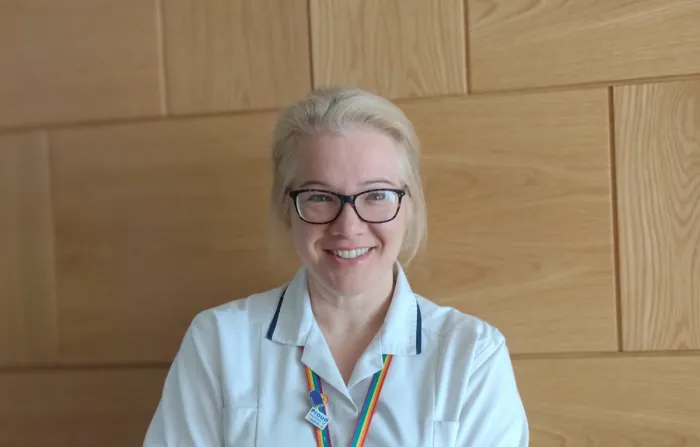
Developing stroke service leads to interest in research
Almost 10 years ago Stroke Physiotherapist Lal Russell was faced with the challenge of developing rehabilitation services for severely disabled stroke survivors.
At the time, these individuals were unable to access existing stroke rehabilitation in the community. Working at Nottingham University Hospitals NHS Trust, she turned to research for guidance, only to find that little was published for this patient group and they were commonly excluded from national guidelines.
The service was launched in 2014 and once established, Lal undertook a Health Education East Midlands Silver award in 2015. Funded by NIHR under the mentorship of Dr Rebecca Fisher, she began to explore the research regarding this patient group. Following successful completion of the award, she accepted a secondment supporting Dr Fisher in the stroke theme for the East Midlands Academic Health Science Network in 2016, supporting community stroke teams collecting national data.
In order to develop a greater understanding of the foundations of healthcare research Lal undertook an MA in Research Methods the University of Nottingham in 2017, before returning to stroke rehabilitation at Nottingham University Hospitals NHS Trust. She continued to support Dr Rebecca Fisher in exploring research into the more severely disabled stroke survivors, resulting in ARC East Midlands funding for the A home-based rehabilitation intervention for survivors of stroke with severe disability (HoRSSe study) which commenced in April 2020.
Lal has continued to work clinically thoughout her journey. In April 2021, she was successful in gaining a prestigious THIS Institute PhD Fellowship. She is currently exploring the use of national audit programmes and their role in quality improvement for community stroke rehabilitation.
Commenting on why she took this route, Lal said: “early in my clinical career, research wasn’t on my radar, however, there comes a point when you need that leverage to develop services and guidance for what best practice looks like for your patients – and it just wasn’t there.”
Over the last 10 years, Lal has balanced both clinical and academic roles. She said: “I have been fortunate in having a supportive clinical team, stroke expertise in the form of Clinical Specialist Ruth Sturt, managerial support from NUH Therapies and the mentorship of Dr Fisher. I feel part of a larger clinical- academic team, it’s not something I could achieve on my own.”
